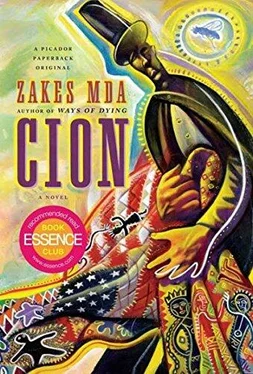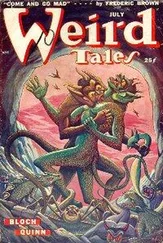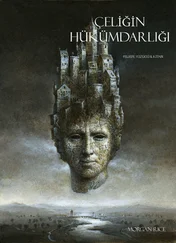“Where you off to?” she asks finally.
“Just a walk…on my own.”
“I have more drawings for you to hide,” she says.
“I don’t think I want to do that anymore,” I say.
“Come on, man! You know what’ll happen when the tsunami finds them in my room.”
“I don’t think you should call your mama names. It’s disrespectful.”
“You gave her that name.”
Trust her to remember that. I am ashamed that, yes indeed, I gave her mama that name in a moment of wickedness when she was storming through the house doing her spring cleaning in readiness for the New Year. A real tsunami had hit parts of Asia a few days after Christmas. It became part of the exciting family viewing, with every television network showing live pictures of the devastation and the helpless victims and helicopters flying about rescuing people from the treetops. It also became a source of heated argument at the dinner table, with Ruth complaining: “The people of the world think we Americans are one level below God.”
“They are right, Mama,” said Obed. “Even George W. Bush told us that as an American you’re God’s gift to the world.”
“They want us to do everything,” Ruth continued. “Now we’re sending three hundred and fifty million big ones to the tsunami victims.”
“It’s good to do this, Mama,” insisted Obed.
“Who said it ain’t good, boy?” asked Ruth. “If they don’t send no one to look after that money it’s gonna end up with them drug lords and all sorts of other lords.”
Obed did not have an answer for this and I thought it was the end of the subject. But after considering the matter for a few more seconds she burst out: “There’s many poor counties in Ohio…like ours. If they gave some of that money to us…even if it’s two thousand dollars per county…it would make all the difference.”
And this from the very Ruth who was critical of the handouts that she claimed had made her people poorer. I suppose when it comes from the government it is not a handout but a “program.”
“Don’t you mean two million dollars?” asked an increasingly impertinent Obed.
“Whatever! You like to contradict me.”
That was the end of that discussion. But it was just the beginning of the spring cleaning that month. And of the continuation of the destruction of Orpah’s designs. Hence the name. I told Obed: “Don’t provoke the tsunami,” when he was bent on picking every minor bone with Ruth. He found that funny and started calling his mother a tsunami behind her back. Orpah picked it up and liked it too.
Now she is waiting for my response and when it’s not forthcoming she repeats: “You named her that. And Ayatollah Ruth and a Taliban in da House.”
“I am sorry I did. It’s no less disrespectful that it was started by me.”
“Don’t be sorry. She messes up my stuff bad. She is a tsunami.”
“She wants the best for you,” I say.
She is taken aback by this. She stops and looks at me. I walk on. She turns her back and walks away. But she changes her mind and calls after me. I pretend I don’t hear and walk on. She comes trotting after me.
“What’s your problem, man?” she asks.
“You don’t hear me complaining of anything. That means I don’t have a problem.”
I hate Mahlon for making me treat Orpah this way.
She opts for appeasement. She shows me her dry ghost orchid. Her father, she believes, will find her more ghost orchids in the woods. Didn’t I want to see her new work? It is inspired by ghost orchids.
I need an excuse to get rid of her. I tell her that I am going to mourn.
“But you ain’t in your getup,” she says.
“Sometimes I do some of my shaman things without it,” I tell her.
I don’t know if she can see through the lies or not. I don’t care either. She walks away, obviously very disappointed.

In the dying weeks of spring I spend most of my time at the Center. My quilting improves tremendously, though I find the Drunkard’s Path very difficult. Barbara is a patient teacher and shows me how to do it by cutting the shapes out on a newspaper.
“Once you master the nine-patch you can do anything,” she assures me.
Sometimes even when I have no plans to go to the Center one of the women phones me to come and assist with one thing or the other. Or to help unload the trucks on food give-away days. “You being from Africa and all, you’ll really like it when you see all that food,” the woman says. I don’t have the heart to destroy her delusion that the sight of food is an orgasmic experience for an African.
There is a lot of food to sort before Barbara phones each family in Kilvert to come for their parcels. The Center serves two hundred and forty people at a time. Like many other food pantries in the region the Center orders the food from the Second Harvest Food Bank in Logan. It costs the Center anything between three and four hundred dollars for the number of cases needed to supply the folks on their list, although almost every time some people have to go without. I assist the women to sort the food and divide it into parcels. A parcel contains two cans each of meatballs in tomato sauce, beans, corn, spaghetti sauce, green beans, and orange juice concentrate. Besides the canned foods each parcel contains boxes of rice, spaghetti, egg noodles, cereal and powdered milk.
Barbara calls each person on the list, including Ruth.
Soon there are many rusty pickups, cars and vans parked in the yard, until they overflow into the street. A long line of mostly middle-aged and elderly Kilverters forms at the door. “They’re tickled to death to get whatever they can,” says Irene. I can see Orpah in the line. Later Obed also comes for his own food parcel. After receiving the food parcel each person comes to my table where I hand out a leaflet titled Information You Can Use: Medicare Prescription Drug Coverage.
Orpah continues to look for opportunities to foist herself on me. She comes along on one of my walks to harvest dandelion leaves near the Federal Creek bridge for Ruth’s salad. This is the season for the perfect leaves because once the weather gets hot they become bitter and inedible. Orpah follows me like a lovesick puppy, asking me what it is that she ever did to me since I have become “funny” toward her. I am tempted to ask her about the nighttime shenanigans but think better of it. I do not even know if they still go on or not. I have heard the sound of the sitar in the middle of the night, sometimes after midnight, but I always cover my head with the comforter when it becomes too disturbing. I have long stopped going out to see what was happening because I no longer want to torture myself.
Something has indeed changed about Orpah. She now joins us at the dining room table and makes a point of initiating some form of conversation with me, mostly about her ghost orchids. After dinner she joins us to watch television. She argues with Obed when he complains that these days television is boring because good programs are in hiatus. He says he misses the good old days of bombings and live military action, the last of which was about four months ago when the homeland forces marched into Fallujah. Those were the days television screens lit up with big letters: Operation Phantom Fury to the background of suspenseful music. I remember, Obed used to come home early and would flip from one cable channel to another as the superheroes changed the world for the better, in the words of the Commander-in-Chief. This used to be family viewing of the highest order. But what I never really understood about Obed, even though he enjoyed the war and rooted for the forces to smother everything in their path, he vehemently argued against the war with his mother. When, for instance, after a particularly bloody battle Ruth said: “We dying to save them Iraqis against themselves,” Obed responded: “We destroyed the darn place, Mama. We destroy it in order to save it?”
Читать дальше













